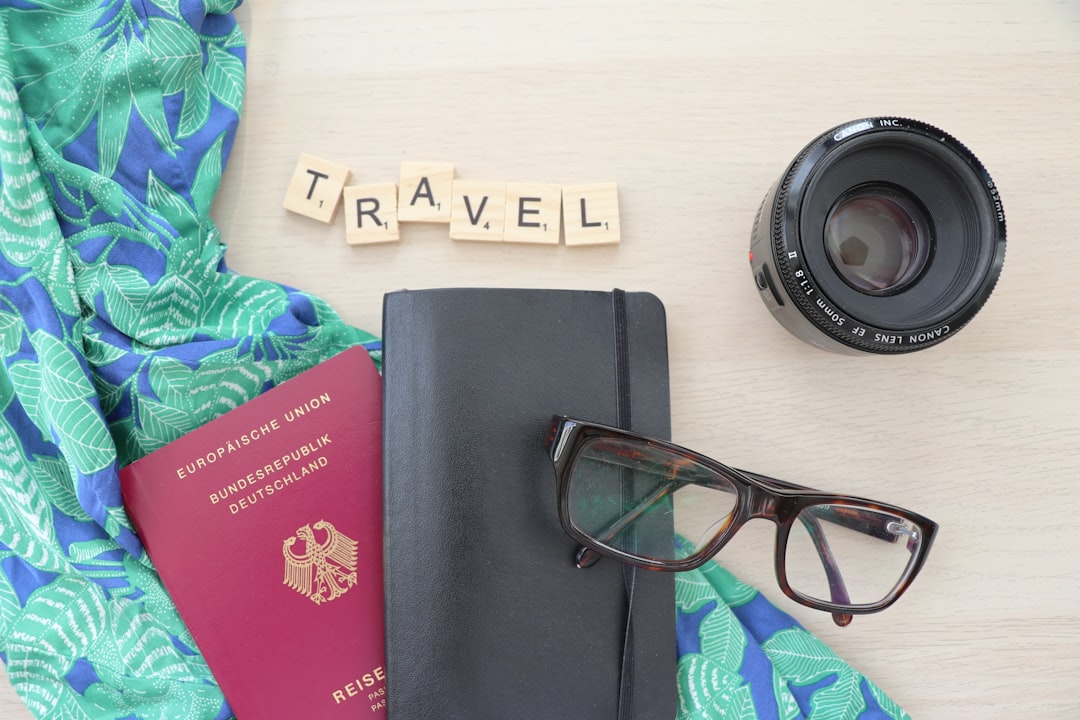Live Anywhere How to Choose the Perfect Digital Nomad Base

Introduction
The freedom to work from anywhere is the cornerstone of the digital nomad lifestyle. Yet the promise of “live anywhere” can feel overwhelming when you start to think about the practicalities of choosing a base. A perfect digital nomad base is not just a beautiful backdrop for Instagram. It is a place where reliable internet meets affordable living, where visa rules are clear, and where community and safety support your productivity and wellbeing.
In this guide we break down the decision‑making process into clear, actionable steps. Whether you are planning a six‑month stay, a year‑long adventure, or an indefinite nomadic career, the criteria below will help you pinpoint the location that fits your work style, budget, and personal preferences.
Why the Right Base Matters
Productivity
Your ability to meet deadlines, hold video calls, and deliver quality work hinges on stable connectivity and a conducive work environment. A spot with frequent power outages or spotty Wi‑Fi can quickly turn a dream location into a source of stress.
Cost of Living
Even if you earn a comfortable salary in a strong currency, high day‑to‑day expenses can drain your savings. Understanding the true cost of housing, food, transport, and leisure activities allows you to budget accurately and avoid unpleasant surprises.
Legal Compliance
Many countries now offer digital nomad visas, but the requirements differ widely. Staying in a country without the proper permit can lead to fines, deportation, or the loss of future travel privileges.
Community and Support
Loneliness is a common challenge for remote workers. A thriving expat or nomad community provides networking opportunities, social events, and practical advice on everything from finding a coworking space to navigating local bureaucracy.
Lifestyle Fit
Climate, cultural attractions, language, and health‑care quality all influence how comfortable you feel on a day‑to‑day basis. A location that aligns with your personal interests will keep you motivated and happy over the long haul.
Core Factors to Evaluate
Below is a checklist of the most important variables to consider. Use it as a starting point for research and as a reference when you compare potential bases.
Internet Speed and Reliability
Average download/upload speeds, latency for video calls, and the prevalence of fiber or 5G networks.
Availability of backup options such as mobile hotspots or coworking spaces with redundant connections.
Cost of Living
Housing: monthly rent for a one‑bedroom apartment in a safe neighborhood, utilities, and internet fees.
Food: grocery prices, restaurant costs, and the availability of cooking facilities.
Transport: public transit passes, ride‑share rates, and the cost of renting a scooter or bicycle.
Visa Options
Length of stay permitted under tourist visas.
Specific digital nomad visas: eligibility, income thresholds, application timelines, and renewal processes.
Possibility of switching to a longer‑term residency if you decide to stay.
Safety and Stability
Crime rates, especially concerning theft and assault.
Political stability and the likelihood of civil unrest.
Natural disaster risk – earthquakes, hurricanes, floods – and the quality of emergency services.
Time Zone Compatibility
Overlap with your clients or team’s working hours.
Impact on your personal schedule – whether you prefer early mornings, late evenings, or a split shift.
Health‑Care Access
Quality of public and private hospitals.
Availability of English‑speaking doctors.
Health‑insurance requirements for expatriates.
Coworking and Community Spaces
Number and quality of coworking hubs.
Frequency of networking events, workshops, and meet‑ups.
Presence of a dedicated digital nomad or expat Facebook/WhatsApp group.
Climate and Outdoor Activities
Average temperature, humidity, and rainfall.
Proximity to beaches, mountains, hiking trails, or cultural sites.
Seasonal variations that could affect your mood or work routine.
Language and Cultural Barriers
Prevalence of English in daily life.
Ease of learning the local language.
Attitude of locals toward foreigners and remote workers.
Step‑by‑Step Research Process
Step 1 – Define Your Personal Priorities
Write down the top three factors that matter most to you. For example: “fast internet,” “budget under $1,500 per month,” and “English‑friendly community.” This list will act as a filter when you start comparing locations.
Step 2 – Compile a Shortlist
Use existing resources such as digital nomad blogs, travel forums, and the “Best Destinations for Digital Nomads” guide to create a list of 8‑12 cities that meet your basic criteria.
Step 3 – Gather Quantitative Data
For each city, fill in a simple spreadsheet with the following columns:
Average monthly rent (city centre, outside centre)
Utilities + internet cost
Average food cost per day
Internet speed (Mbps) and provider reliability rating
Visa length and income requirement
Time zone offset from UTC
Safety index (source: Numbeo or similar)
Health‑care rating
Populate the numbers from reputable sources: government tourism sites, cost‑of‑living calculators, speed test reports, and visa official pages.
Step 4 – Qualitative Assessment
Read recent expat reviews on platforms like Reddit, Nomad List, and Facebook groups. Note recurring themes such as “friendly locals,” “slow bureaucracy,” or “frequent power cuts.” Add a short comment column in your spreadsheet for each city.
Step 5 – Weight Your Criteria
Assign a weight (1‑5) to each factor based on your personal priorities. Multiply the weight by the city’s score for that factor and sum the totals. This simple weighted scoring system highlights which locations align best with your needs.
Step 6 – Conduct a “Trial Run”
If possible, book a short stay (one to two weeks) in your top two choices. Use a coworking desk, test the internet, explore neighborhoods, and interact with the local community. Take notes on how you feel after a few days of work and leisure.
Step 7 – Make the Decision
Compare the trial run experiences against your weighted scores. Choose the base that feels both objectively suitable and subjectively comfortable.
Tools and Resources
- Nomad List – live database of cost of living, internet speed, safety, and community ratings.
- Speedtest.net – check average internet speeds for specific neighborhoods.
- Numbeo – provides safety, health‑care, and pollution indexes.
- VisaHQ – up‑to‑date information on digital nomad visa requirements worldwide.
- Airbnb & local rental platforms – give realistic short‑term pricing and neighborhood reviews.
- Google Maps Street View – explore streets, cafés, and coworking spaces virtually before you arrive.
- Expat forums – Reddit r/digitalnomad, Facebook groups for each city, and specialized Discord servers.
Personal Priorities in Action
Example 1 – The Fast‑Internet Freelancer
Priority list: Internet speed, time‑zone alignment with North America, moderate cost.
Shortlist: Medellín (Colombia), Chiang Mai (Thailand), Lisbon (Portugal).
Weighted scoring: Internet speed (5), time zone (3), cost (2).
Result: Medellín scored highest because its city‑wide fiber network delivers 100 Mbps average speeds, its UTC‑5 zone overlaps well with US Eastern time, and rent for a furnished apartment is around $600 per month.
Trial run: A week in a coworking space in El Poblado confirmed stable Wi‑Fi and a friendly community of remote workers.
Example 2 – The Budget‑Conscious Explorer
Priority list: Cost of living, safety, English‑speaking environment.
Shortlist: Budapest (Hungary), Canggu (Bali), Tbilisi (Georgia).
Weighted scoring: Cost (5), safety (3), language (2).
Result: Tbilisi emerged as the top choice. Monthly rent for a central studio is $350, utilities and internet add $80, and the city boasts a low crime rate. English is widely spoken among younger residents and in the expat community.
Trial run: Two weeks of staying in a guesthouse near Old Town confirmed low prices for fresh markets and easy access to coworking hubs.
Long‑Term Considerations
Residency Pathways
If you anticipate staying longer than a year, investigate whether the country offers a pathway from a digital nomad visa to a permanent residency or citizenship. Some nations, such as Portugal’s D7 visa, allow a smooth transition after a few years of continuous stay.
Tax Implications
Living abroad can affect your tax residency. Research the double‑taxation agreements between your home country and the destination. In some cases, you may need to file tax returns in both jurisdictions, or you may qualify for the foreign earned income exclusion.
Healthcare Planning
Long‑term stays often require private health insurance that meets local standards. Look for insurers that specialize in expatriate coverage and that have a network of providers in your chosen city.
Community Evolution
Nomad hotspots can become saturated, leading to higher prices and reduced authenticity. Consider whether the community is still growing organically or if it has become overly commercialized. A balanced environment offers both networking opportunities and a genuine local experience.
Frequently Asked Questions
Do I need a digital nomad visa for every country I stay in?
Not necessarily. Many nations allow stays of 30, 60, or 90 days on a tourist visa. However, if you plan to stay longer or work for a local client, a digital nomad visa provides legal clarity and often includes tax benefits.
How can I ensure reliable internet in a new city?
Check local ISP coverage maps, read recent reviews on coworking spaces, and consider purchasing a local SIM card with a generous data plan as a backup.
Is it safe to work from cafés?
Most cafés in popular nomad cities have decent Wi‑Fi and a comfortable atmosphere. Keep your laptop locked when you step away, use a VPN for secure connections, and be mindful of your belongings.
What is the best way to meet other digital nomads?
Attend meet‑ups organized by coworking spaces, join local Facebook or Discord groups, and participate in community events such as language exchanges or hackathons.
How do I handle time‑zone differences with clients?
Set clear expectations about your working hours, use calendar tools that show multiple time zones, and schedule core overlap hours for meetings.
Checklist for Your Final Decision
- [ ] Internet speed meets at least 50 Mbps download and 10 Mbps upload.
- [ ] Monthly budget (housing, food, transport, coworking) fits within your financial plan.
- [ ] Visa length aligns with your intended stay and you meet the income requirement.
- [ ] Safety index is above 60 (on a 0‑100 scale).
- [ ] Health‑care facilities are rated as “good” or higher.
- [ ] Time‑zone overlap provides at least 4 hours of shared working time with key contacts.
- [ ] Community events are scheduled regularly (weekly or bi‑weekly).
- [ ] Climate suits your personal preference and does not affect health.
- [ ] Language barrier is manageable (English widely used or you are comfortable learning basics).
If you can check off the majority of these items, you are likely ready to commit to your new base.
Conclusion
Choosing the perfect digital nomad base is a blend of data‑driven analysis and personal intuition. By clarifying your priorities, gathering reliable metrics, and testing the environment with a short stay, you can move beyond vague “nice‑to‑have” lists and make a confident, sustainable decision.
Remember that the ideal location today may evolve as your career, budget, or lifestyle changes. The framework outlined here is reusable: whenever you feel the urge to relocate, revisit the checklist, adjust the weighting of factors, and repeat the research cycle.
With a systematic approach, the world truly becomes your office, and each new base can enrich both your professional output and personal growth. Safe travels and productive work!
Random Posts

Explore Africa’s Prime Digital Nomad Havens
Discover Africa’s top digital nomad spots where fast WiFi, low cost living and stunning scenery meet vibrant culture. This guide reveals the best cities and towns for remote work and adventure
2 months ago

From Beaches to Mountains Ideal Nomad Locations and Tools
Discover top beach and mountain destinations for digital nomads and the must-have gear that keeps you productive, comfortable and safe wherever you work.
1 month ago

Building a Global Nomad Network Through Meetups
Meetups turn isolated digital nomads into a trusted global network, fostering face-to-face connections, collaborations and mentorship that virtual chats can’t replace.
2 months ago

Mastering Light Travel Without Sacrificing Comfort
Learn how to travel light while keeping the comforts that boost productivity, health and happiness. Discover minimalist mindsets, multipurpose gear and sustainable packing tricks that fit in any overhead bin without compromise.
2 months ago

Mountain Retreats for Remote Workers and Seamless Travel Strategies
Discover top mountain villages where remote work thrives, with reliable internet, affordable stays, and smart travel tips that let you stay productive while breathing fresh alpine air.
3 weeks ago
Latest Posts

Essential Software Every Remote Professional Should Use
Master remote work with essential tools: instant messaging like Slack, high definition video calls such as Zoom, and asynchronous voice apps. Streamline communication, stay connected and boost productivity.
1 day ago

Mastering Remote Work Productivity for Digital Nomads and Freelancers
Learn proven habits, tools, and tactics that help digital nomads and freelancers stay focused, deliver quality work, and maintain a sustainable lifestyle while traveling the world.
1 day ago

Tech‑Friendly European Towns Perfect for Remote Living
Discover Europe’s best small towns where fast internet, affordable living and vibrant tech communities let you work remotely while soaking up historic charm, lakeside views or mountain air.
1 day ago